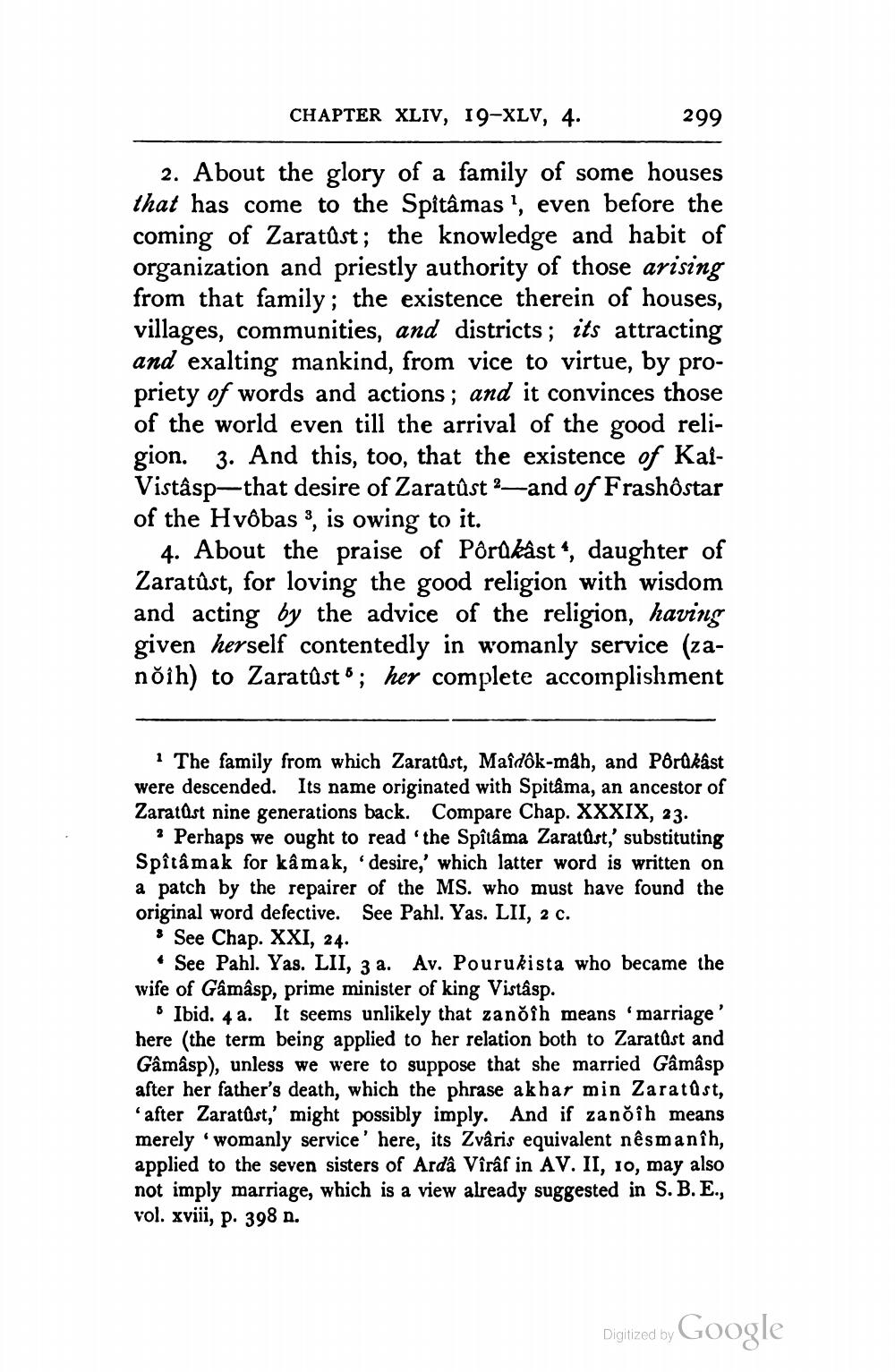________________
CHAPTER XLIV, 19-XLV, 4.
299
2. About the glory of a family of some houses that has come to the Spitâmas, even before the coming of Zaratûst; the knowledge and habit of organization and priestly authority of those arising from that family; the existence therein of houses, villages, communities, and districts; its attracting and exalting mankind, from vice to virtue, by propriety of words and actions; and it convinces those of the world even till the arrival of the good religion. 3. And this, too, that the existence of KaiVistâsp—that desire of Zaratûst 2—and of Frashồstar of the Hvôbas 3, is owing to it.
4. About the praise of Pôrakast“, daughter of Zaratûst, for loving the good religion with wisdom and acting by the advice of the religion, having given herself contentedly in womanly service (zanổih) to Zaratůst; her complete accomplishment
1 The family from which Zaratûst, Maîdôk-måh, and Pôrakast were descended. Its name originated with Spitâma, an ancestor of Zaratast nine generations back. Compare Chap. XXXIX, 23.
? Perhaps we ought to read the Spîtâma Zaratůst,' substituting Spîrâmak for kâmak, 'desire,' which latter word is written on a patch by the repairer of the MS. who must have found the original word defective. See Pahl. Yas. LII, 2 c.
* See Chap. XXI, 24.
+ See Pahl. Yas. LII, 3 a. Av. Pourukista who became the wife of Gamasp, prime minister of king Vistâsp.
Ibid. 4 a. It seems unlikely that zanõih means 'marriage' here the term being applied to her relation both to Zaratůst and Gâmâsp), unless we were to suppose that she married Gâmâsp after her father's death, which the phrase akhar min Zaratûst,
after Zaratůst,' might possibly imply. And if zanoih means merely womanly service' here, its Zvâris equivalent nêsmanîh, applied to the seven sisters of Arda Vîrâf in AV. II, 10, may also not imply marriage, which is a view already suggested in S.B.E., vol. xviii, p. 398 n.
Digitized by Google




